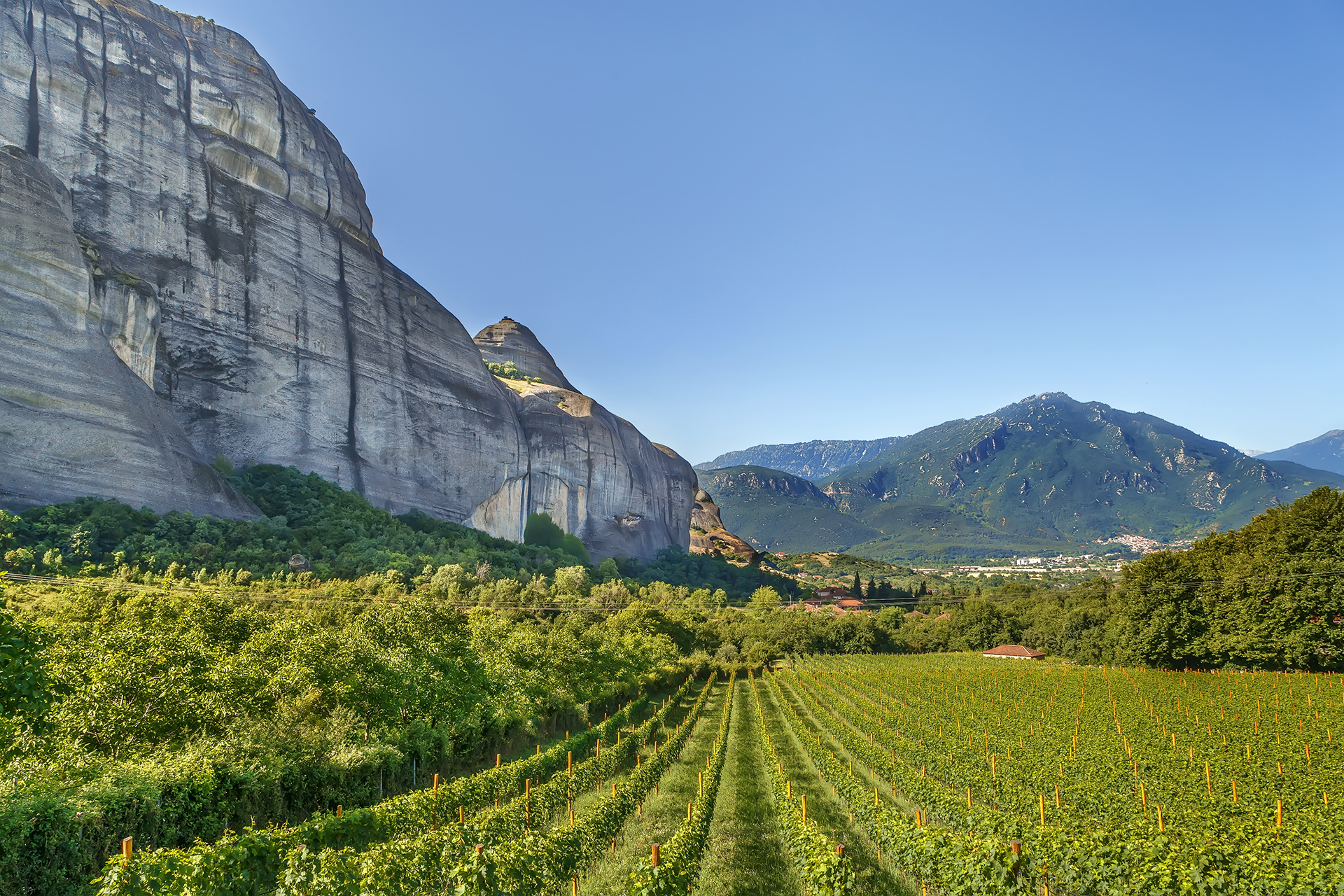
Greece has a millennia-old love affair with wine: as far back as 400 BC, Euripides, the renowned Ancient Greek playwright, and Plato, the great philosopher, eulogized its wonders. And they were right to do so. Greece, one of the oldest wine-producing countries in the world, with a vinification tradition that stretches back 5,000 years, had established itself as a maker of considerable prestige even during their lifetimes.
For centuries, Greek wines were sought throughout Europe, and so, too, were the skills of its vine growers and wine producers. Greece led the way, and in its footsteps followed the regions that would later overtake it, the expanses that we now know as France and Italy.
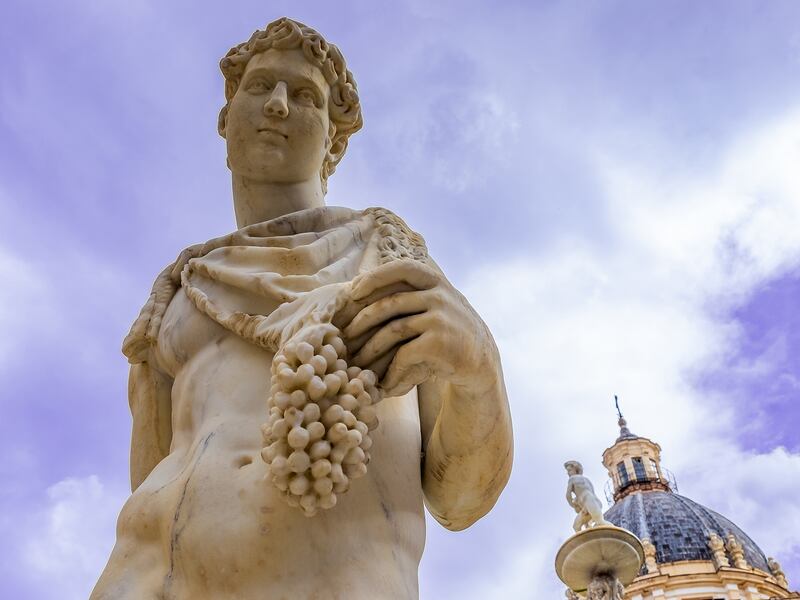
“Greek wines had a golden age that spanned millennia,” explains Caitlin Miller a New York-based specialist in wines and spirits, “but they were eventually surpassed. Revolutions, wars, invasions, infestations of the vine-destroying louse, phylloxera —particularly on the mainland—all took an enormous toll on the industry.
“By the 20th century, the glory days seemed well and truly over," she continues. "Though good wines were still being made by dedicated, passionate makers, they were overshadowed by mass-produced, poor-quality varieties that dominated the market and, sadly, came to represent Greece.”
Rejuvenating a Reputation
Antonios Stratakos, head sommelier at the recently opened, gastronomy-led hotel, OMMA Santorini, agrees with Miller. “For many years, most people thought of Retsina when they thought of Greek wine. This pine-resin infused wine was ubiquitous and was what was most commonly served to tourists who wanted to try something local. It tarnished the reputation of our wines for a long time, but about 30 years ago things took a turn for the better. Since then, great things have happened and are continuing to happen.”
Related: Discover More Exclusive Hotels and Villas in Greece and Beyond

Stratakos describes a unique set of circumstances that began driving the industry forwards and upwards. “We had visitors who wanted to discover excellent local produce, and who were keen to delve deeper into artisanal production. We had some generous EU subsidies. And we had makers willing and able to invest their labor, capital, and love into low-yield, premium production.
“We’re seeing the benefits of that now, with our ambassador varieties—Assyrtiko, Xinomavro, Moschofilero, and Agiorgitiko—getting the recognition they deserve throughout the world and awakening an interest in other grapes, too.”
About 30 years ago Greek wine production took a turn for the better. Since then, great things have happened and are continuing to happen—Antonios Stratakos
A few kilometers from OMMA is Vassaltis Vineyards, which was opened in 2016 by Yannis Valambous, a former banker who inherited the family vineyard from his father some years before. Valambous, one of many young vignerons who are breathing new life into their own plots—and the industry as a whole—exports about 25 percent of his annual yield to a several countries. Currently his largest markets include the United States, United Kingdom, Canada, Spain, France, and Switzerland.
Related: View Incredible Vineyard Homes Around the World
</div>
</div>
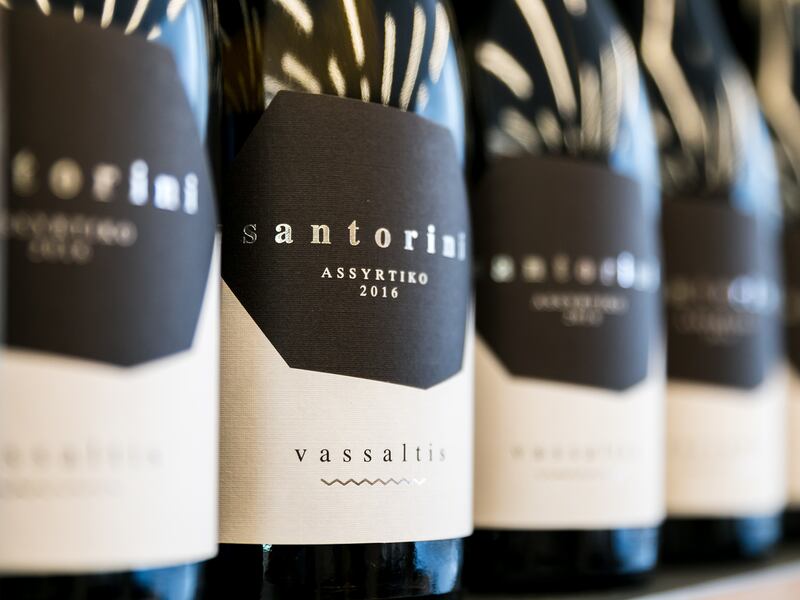
Valambous believes that Greek wine stepped back into the limelight when it stopped trying to be a universal crowd-pleaser. “When we highlighted the individuality of our ancient, native varietals, when we allowed the minerality of our soils to come through, and when we celebrated our points of differentiation and our heritage, that’s when we started the long walk back to excellence.
“We’re racing down that road now, I am happy to say. The Greek wine sector is showing extreme good health, and we now have new consumers who are following us down that path, watching with interest as we evolve and push the bar further and further up.”
Wines to Watch Out For
Miller rates the wines of Santorini very highly and attributes many of their unique qualities to the island’s volcanic soils. “The terroir produces grapes with high minerality and acidity. Santorini is one of the few places in the world not affected by phylloxera, and so has some of the oldest vines in all of Greece. Many of its wines, including a sweet dessert wine from sun-dried Assyrtiko, have extraordinary complexity and expression.”
However, she points out that there are outstanding wines coming from all over Greece and its islands, thanks to the diversity of its terroirs and microclimates. “These are divided into mountainous or semi-mountainous, coastal, continental, and volcanic regions,” she explains, “and each is giving rise to a huge range of unique wines.”
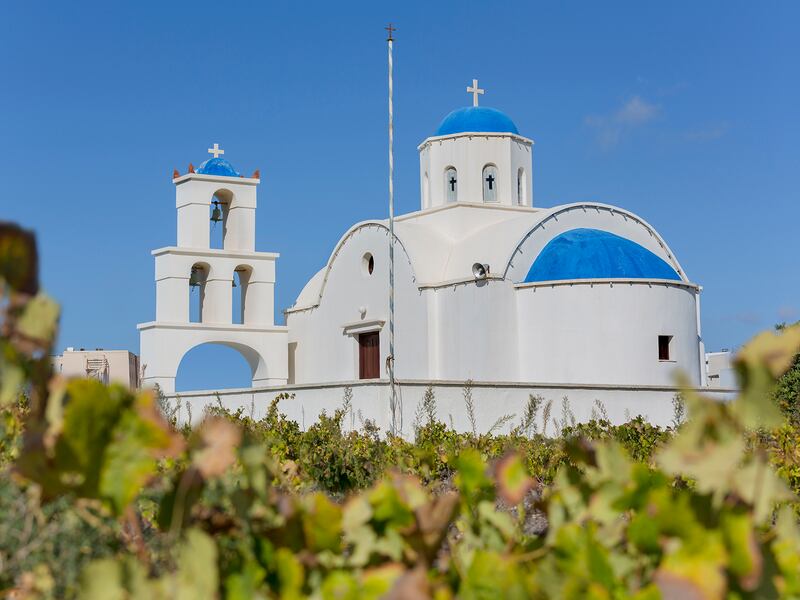
Greece has more than 300 indigenous varieties, although only around 20 are used to make its outstanding wines, with 70 percent of production dedicated to white varieties. But if you are interested in exploring beyond the star grapes, the experts single out emerging reds such as the herby Limniona and rich and graceful Mavrotragano, and whites such as intense and aromatic Malagousia and Monemvasia, full of fresh acidity and citrus. When it comes to dessert wines, those of Samos—of which more than 70 percent are exported—are world-class.
Ancient Innovation
Heritage and tradition are, of course, essential to Greece’s wine production, but of equal importance is evolution and innovation. It’s this leap forward that Panos Manuelides, founder of Odysea, an award-winning Greek food company that sources its range of authentic products from local and family-run enterprises, is especially passionate about.
“I’ve never before experienced a more dynamic or exciting time for Greek wine,” he says. “In just 20 years, I’ve seen remarkable progress. Family estates have passed into the hands of younger generations who are using technology to improve efficiency and the quality of their wines. People are experimenting. For example, the Vidiano grape, from Crete, is now being cultivated commercially in other regions, and we are seeing a growing number of boutique wineries that are producing organic and biodynamic wines.”
Related: Meet the Movements Spearheading a More Sustainable Wine Industry
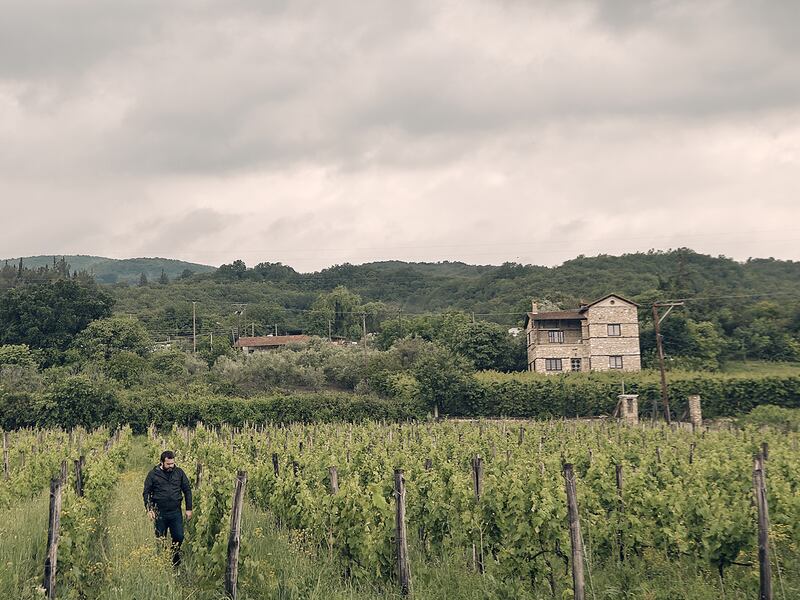
It’s a trend that Miller has also witnessed. “Greece is becoming known for its up-and-coming natural wine producers, such as Domaine de Kalathas and Paleokerisio. The latter makes an interesting semi-sparkling orange wine, a variety made with skin-contact, which is now coming back into fashion.”
But where should those who are just beginning to explore Greek wine start? “Many of our wines share common notes with more well-known varieties,” says Stratakos. “So, for people wanting to find familiarity, I’d suggest starting with a Santorini Assyrtiko, which is similar to a white Burgundy or an aged Riesling, or Xinomavro from Naoussa, which has similarities in taste profile with Nebbiolo.”
Banner image: Vineyards in Meteora, Greece. Getty Images


